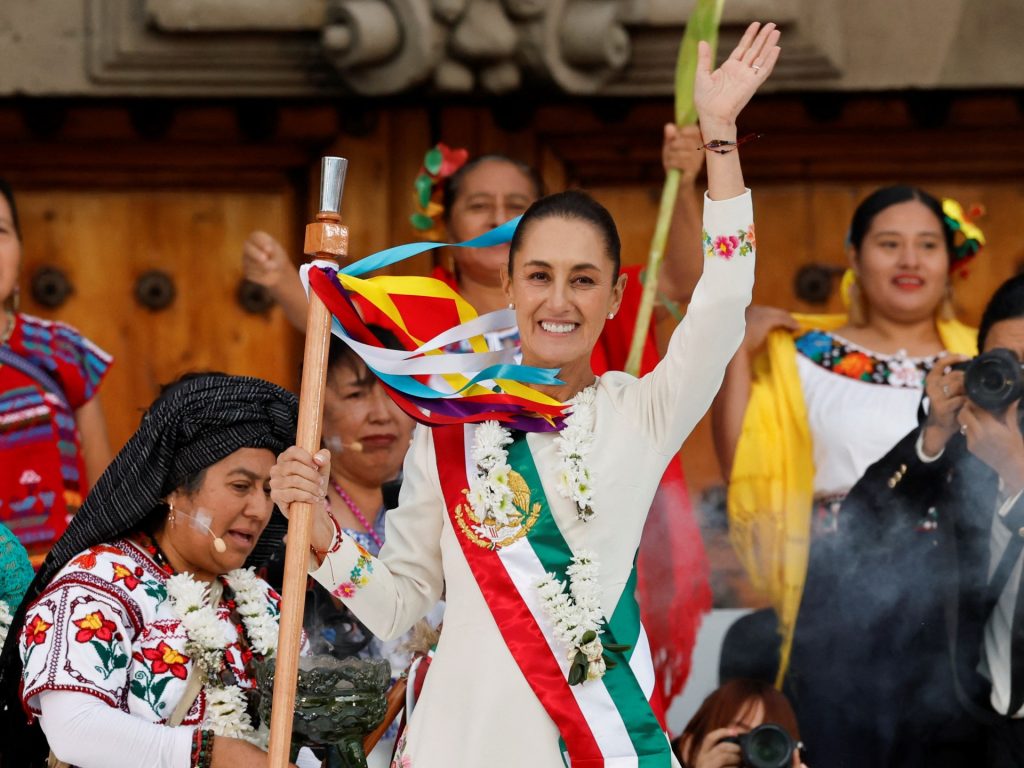Claudia Sheinbaum has become Mexico’s first female president after winning a landslide victory with about 60 percent of the vote, following in the footsteps of her predecessor and mentor Andres Manuel Lopez Obrador. Sheinbaum, an environmental scientist, served as the secretary of the environment for Mexico City during Lopez Obrador’s tenure as mayor and was a member of the Intergovernmental Panel on Climate Change. Despite her background in climate change, she has remained loyal to Lopez Obrador’s pro-hydrocarbon energy policies.
Sheinbaum aims to continue the successful policies of Lopez Obrador, including a focus on ending corruption, reducing violence, and expanding social programs. During his presidency, more than five million Mexicans escaped poverty from 2018 to 2022, driven by an increase in the general minimum wage. However, challenges remain, with extreme poverty increasing by 400,000 people and a lack of access to health and educational services also rising.
Sheinbaum has pledged to continue AMLO’s signature policies, including proposed constitutional changes that have begun to be approved. This includes a controversial constitutional amendment that overhauls Mexico’s justice system, sparking protests and criticism from international human rights organizations. Sheinbaum has given her backing to these reforms, stating that they will strengthen the administration of justice in Mexico.
While Sheinbaum plans to continue with several of AMLO’s policies, she also aims to introduce new initiatives, particularly in areas affecting working-class women. AMLO’s government faced criticism for its handling of gender-based violence and cutting funding for women’s shelters. Sheinbaum’s government has promised to focus on addressing inequalities affecting women and establishing the National Care System to support unpaid care work traditionally done by women.
AMLO’s administration faced challenges with organized crime, violence, and growing military influence despite making progress in areas like acknowledging the mass disappearance of people in the country. Critics of AMLO were often dismissed, leading to confrontations with human rights defenders, nonprofit organizations, and families of the disappeared. Sheinbaum has echoed AMLO’s rhetoric on disappearances being perpetrated by criminals rather than the state, despite evidence indicating otherwise.
Families of the disappeared have called on Sheinbaum to initiate a national dialogue to develop an agenda for searching for their loved ones and seeking justice. Sheinbaum has promised to govern for all and rebuild relationships with sectors of the population that may have felt ignored or uncomfortable during AMLO’s administration. While Sheinbaum aims to continue with AMLO’s policies, she also pledges to introduce changes, particularly in areas affecting women and addressing inequalities in Mexico.















